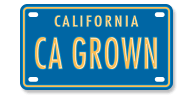Angeleno Wine Company: A Taste of LA’s Lost Vineyards
Nestled just north of Chinatown in downtown Los Angeles, Angeleno Wine Company feels both unexpected and utterly at home. In a city celebrated for its food, diversity, and reinvention, this small-batch urban winery is rewriting what it means to be part of California’s wine legacy. At its helm are co-founders Jasper Dixon and Amy Luftig—two Angelenos with radically different paths into wine, but who share a mission: to revive LA’s lost winemaking heritage with authenticity, sustainability, and a deep sense of place.
“We are literally doing this interview in a space where wine used to be made and grapes used to be grown,” says Amy.
From Side Hustle to Revival Mission
Jasper Dixon grew up in the Bay Area, where his father’s passion for home winemaking sparked a lifelong fascination. “I became curious—how do you ferment things? How is wine made?” Dixon recalls. With no formal training, he taught himself the craft hands-on, eventually working for nearly a decade at Silver Lake Wine. A weekend hobby turned into a full-fledged obsession.
Amy Luftig, on the other hand, came from a background in healthcare. A wine menu once looked like “a foreign language” to her, so she signed up for a single wine course at UCLA. One course turned into several, eventually earning certifications from both UCLA and Washington State University in enology and viticulture.
Their paths merged in 2015 when Amy started a women’s wine tasting group hosted at Silver Lake Wine where Jasper worked. What started as a modest partnership became a deeper commitment to something bigger: telling the long-forgotten story of Los Angeles winemaking.
“In the mid-1800s, Los Angeles was making the equivalent of 25 million bottles of wine a year for a town of 4,000 people,” says Amy.
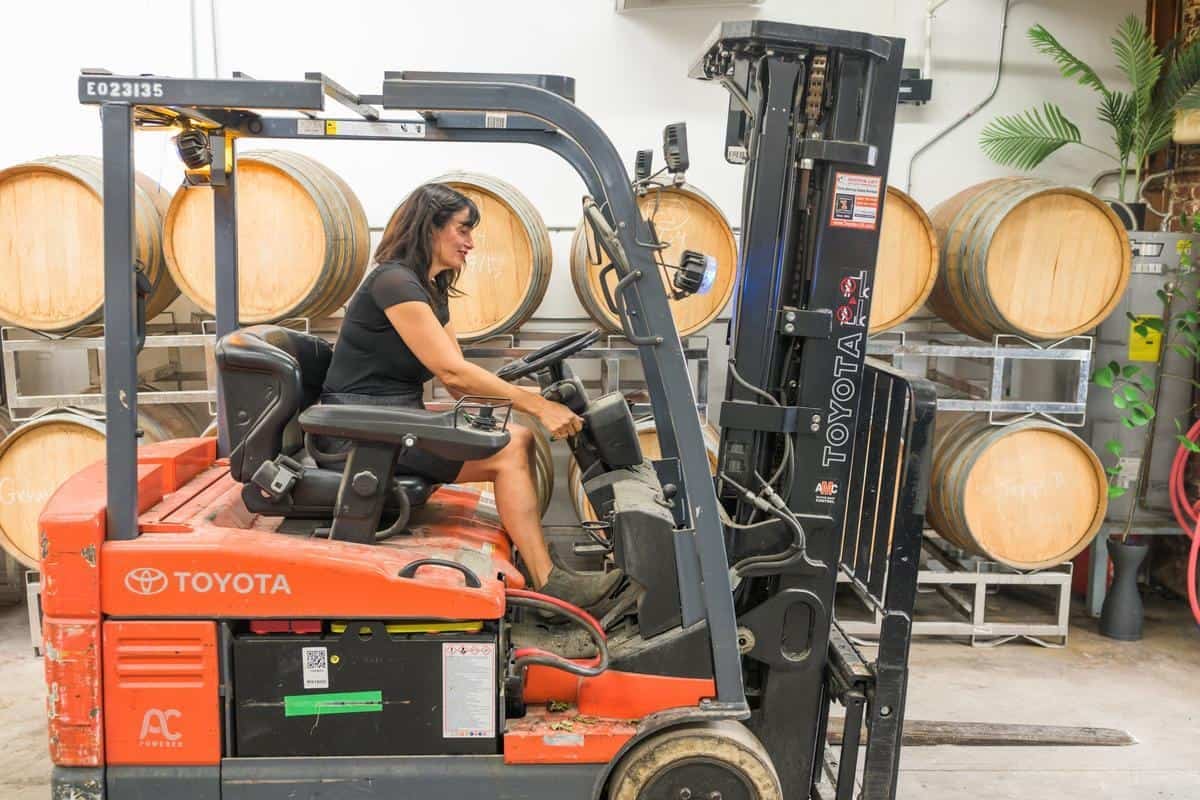
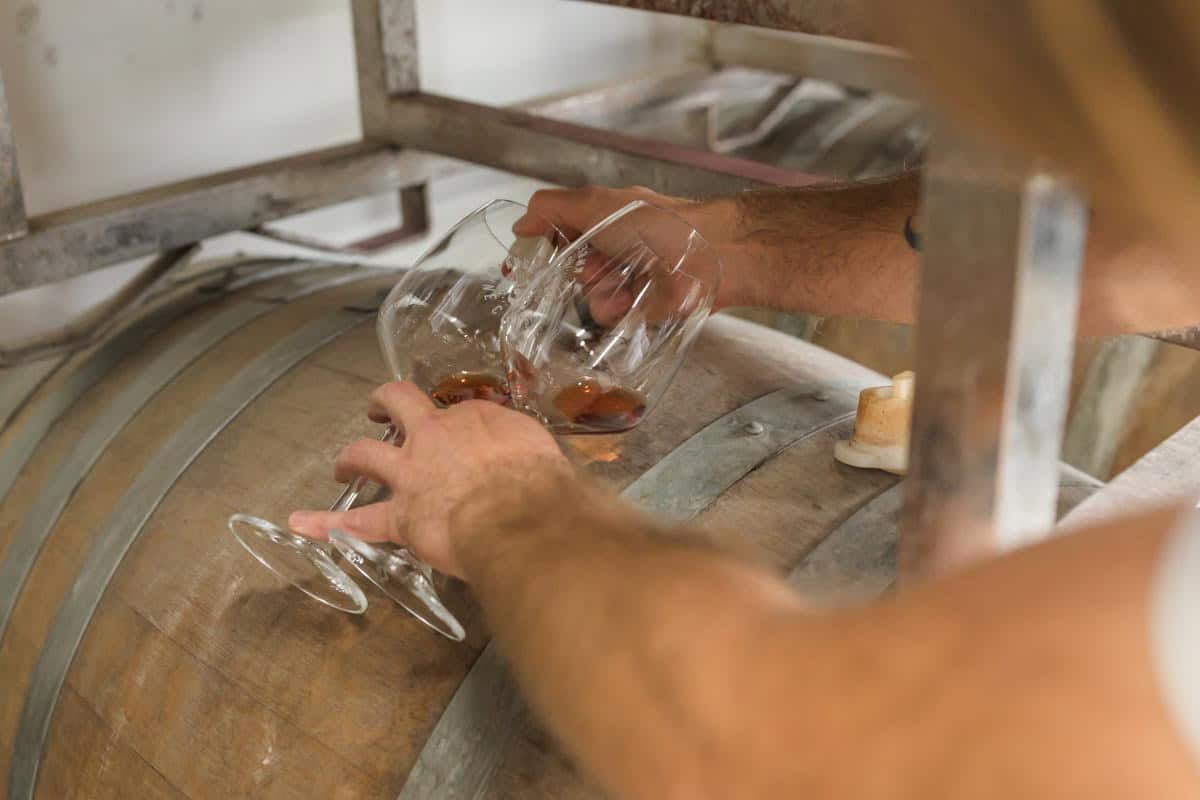
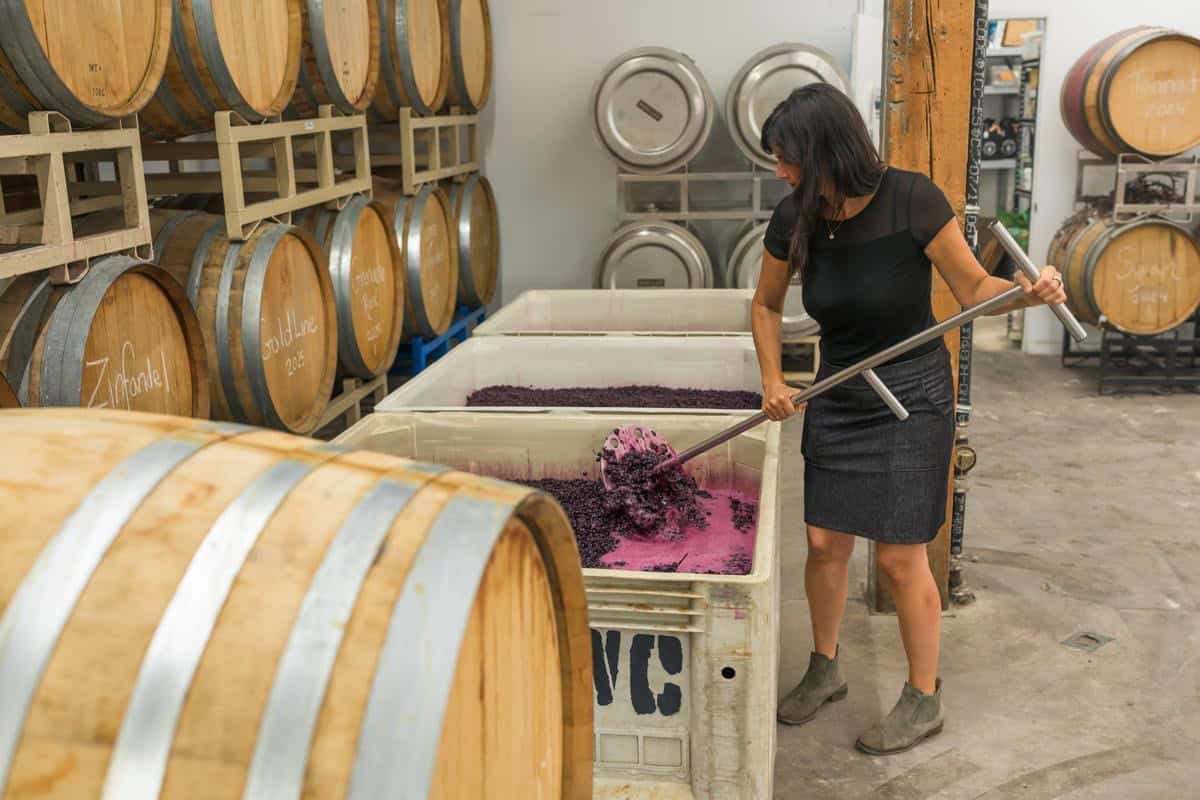
A Winery in the Heart of LA
Angeleno Wine Company officially opened its doors in 2019 in a small 2,400-square-foot warehouse—part winery, part tasting room. Visitors may be surprised to find no vines in sight, but that’s exactly the point. This is urban winemaking at its most intentional.
Los Angeles County, once the cradle of California viticulture, is now home to only a handful of vineyards. Angeleno works almost exclusively with these small, family-owned plots—many of which are less than 10 acres. Their grapes come from Agua Dulce, the Antelope Valley, San Gabriel, and even one ancient vine believed to be over 300 years old.
“We’re making wine from vineyards around Los Angeles—which is something people just don’t really hear about,” Jasper says.
Among their more unusual sources is a single, massive vine growing at Mission San Gabriel. From it, they craft Angelica—a fortified dessert wine with deep roots in California history. Named after Los Angeles itself, Angelica was once the dominant style of wine made in the region during Spanish and Mexican rule.
“When you drink it, you truly feel like you’re drinking wine from an ancient vine,” shares Amy.
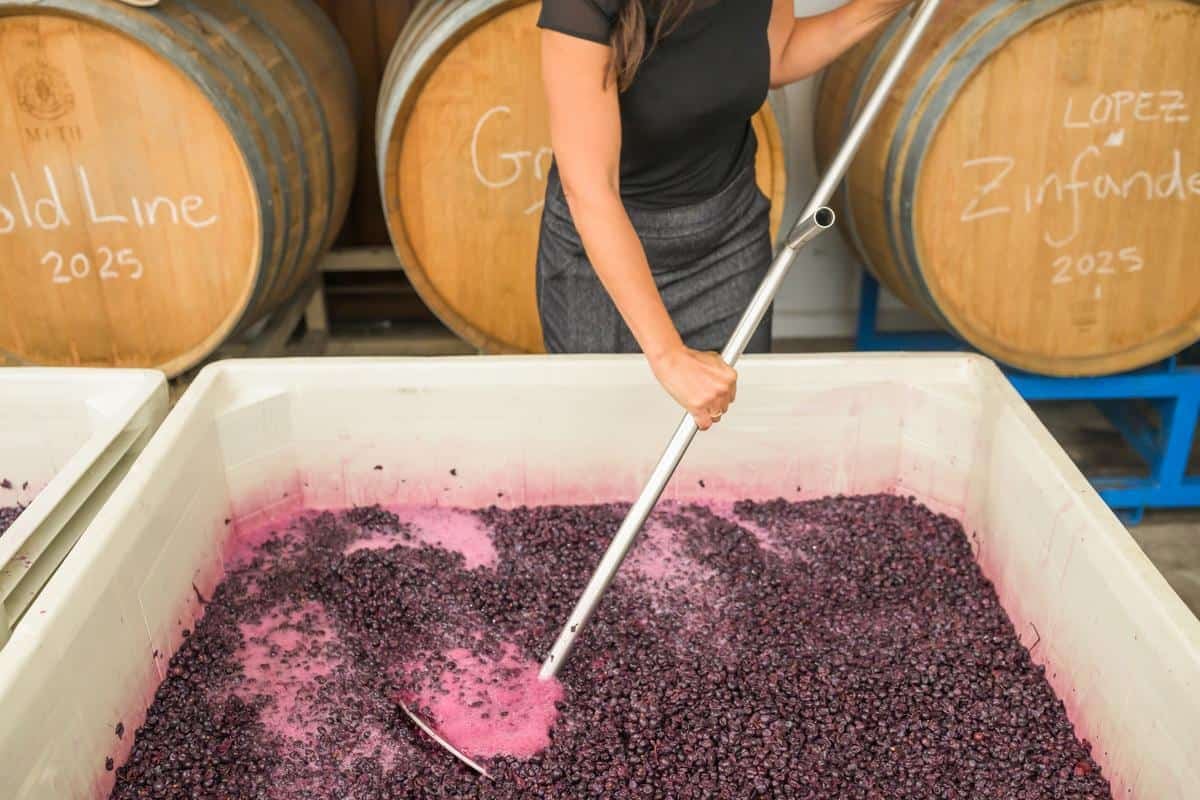
Wine With a Sense of Place
Angeleno Wine Company doesn’t just make wine in LA—it makes Los Angeles wine. Their approach is minimal intervention, letting the vineyard speak through each bottle. Natural fermentations, neutral oak, no added commercial yeasts. Here, every choice is about preserving terroir.
The wines are diverse and vibrant, a true reflection of the region’s varied microclimates. They work with rare Spanish varietals like Albariño, Verdejo, Godello, and Mencía—brought to the area by vineyard owner Juan Alonso, a Spaniard with a love of heritage grapes. For reds, expect everything from light-bodied, chillable bottles to bold Zinfandels and earthy Tenats. And yes, there’s sparkling, too—including the aptly named California Crackler, a nod to 19th-century LA’s early attempts at bubbly, produced using the Champagne method.
“It’s crazy that a winery this small makes this many wines,” laughs Jasper.
Check out more of LA’s wine scene>>
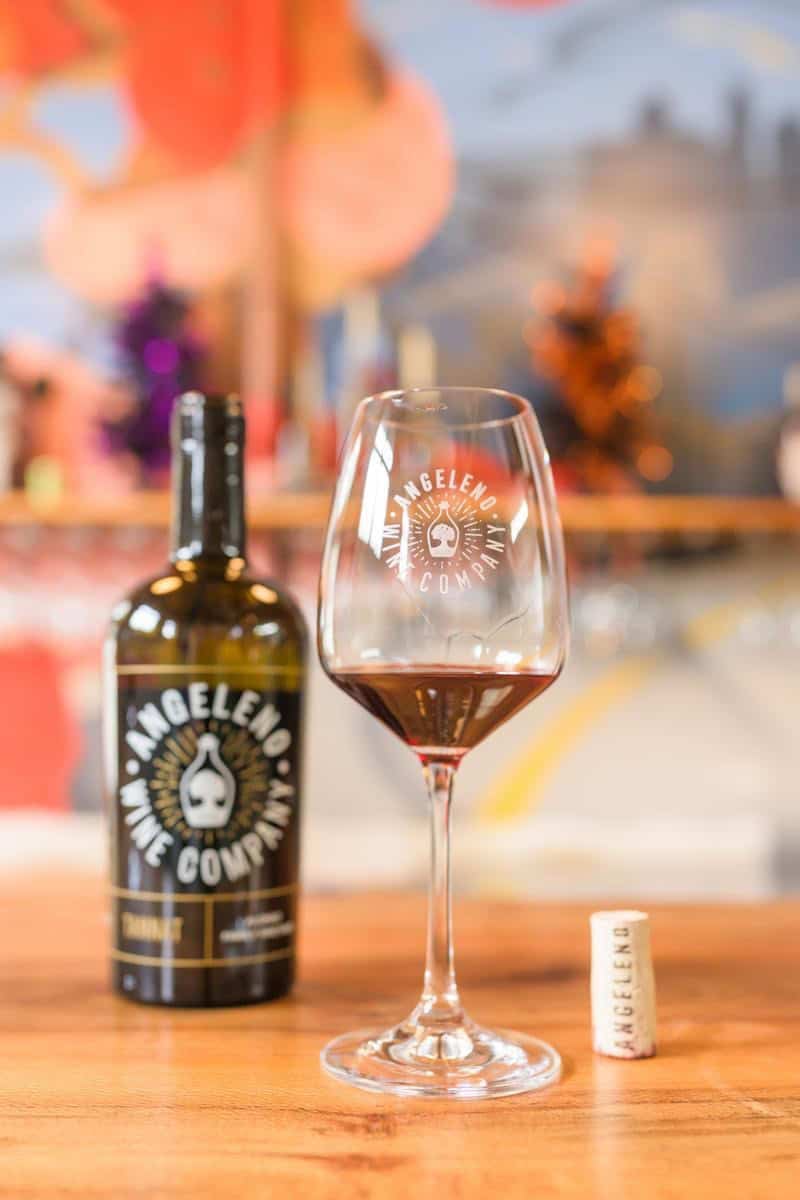
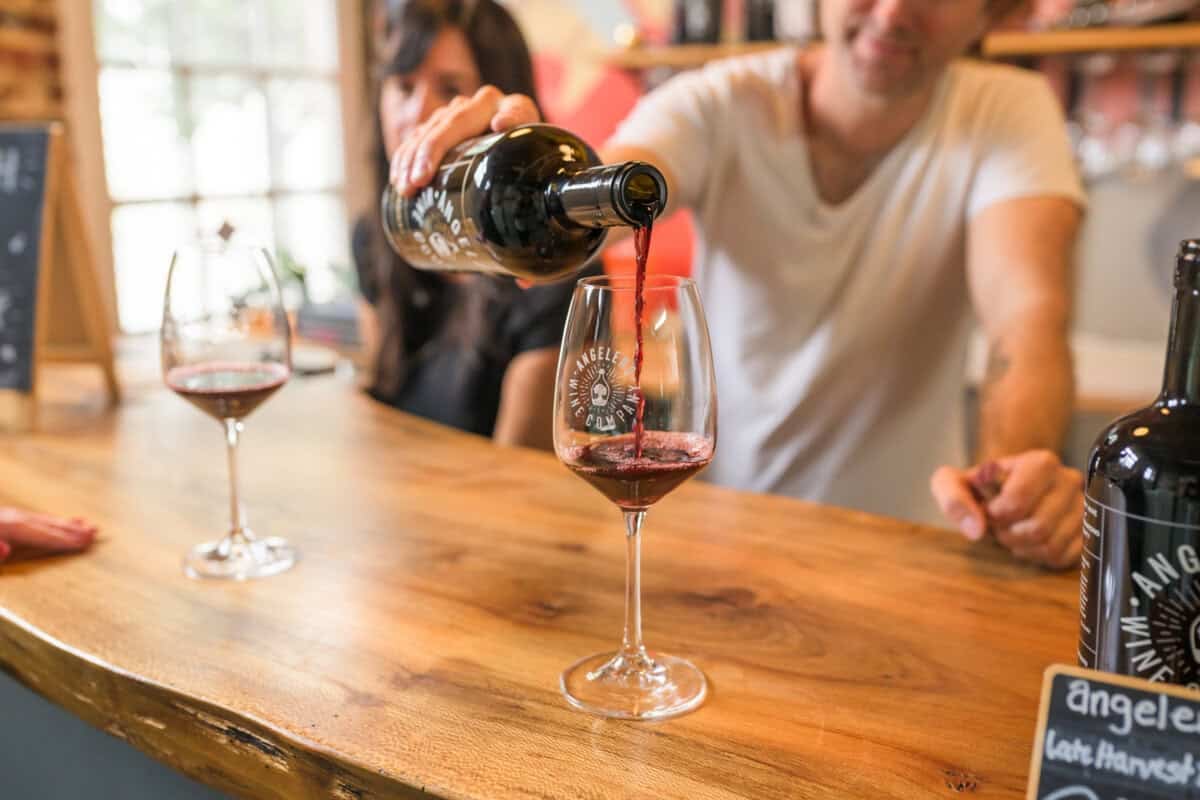
A Tasting Room With Soul
The tasting room at Angeleno is an extension of its philosophy: welcoming, unpretentious, and built for community. Open Friday through Sunday, it’s dog-friendly, family-friendly, and full of curious Angelenos who often arrive not knowing LA even had a wine scene.
“Our wines are meant to be approachable. Flights are $20. Glasses start at $11. We want you to bring your family, bring your dog, and just enjoy,” Amy says.
There’s no marble bar or vineyard vistas here—just barrels, fermenters, and the warm energy of a team passionate about their craft. It’s not uncommon for visitors to meet the winemakers themselves while tasting, or to watch punchdowns happening just a few feet away.
Sustainability at Every Level
Angeleno Wine Company embodies sustainability not just in the vineyard, but across its entire operation. All of their vineyard partners are organic or follow organic practices. They use vegetable-based inks for bottle labels. Leftover grape stems and pomace is composted across the street at LA State Historic Park. And perhaps most tellingly, they pay healthcare for their part-time tasting room manager…an unheard-of move for a small business.
“Our product comes from no further than an hour away. That is the definition of sustainable,” shares Amy.
The decision to stay small is intentional. “We could make more wine,” says Jasper, “but we’d rather keep it local, keep it real, and keep it personal.”
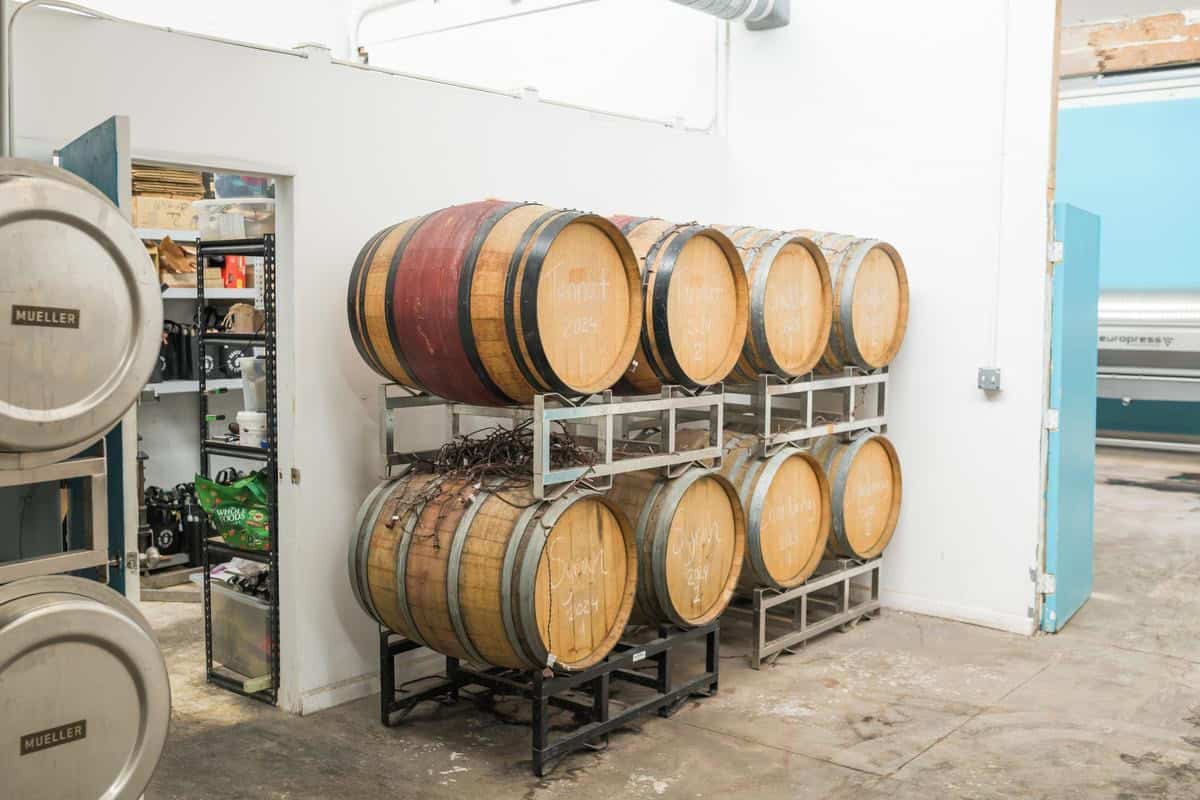
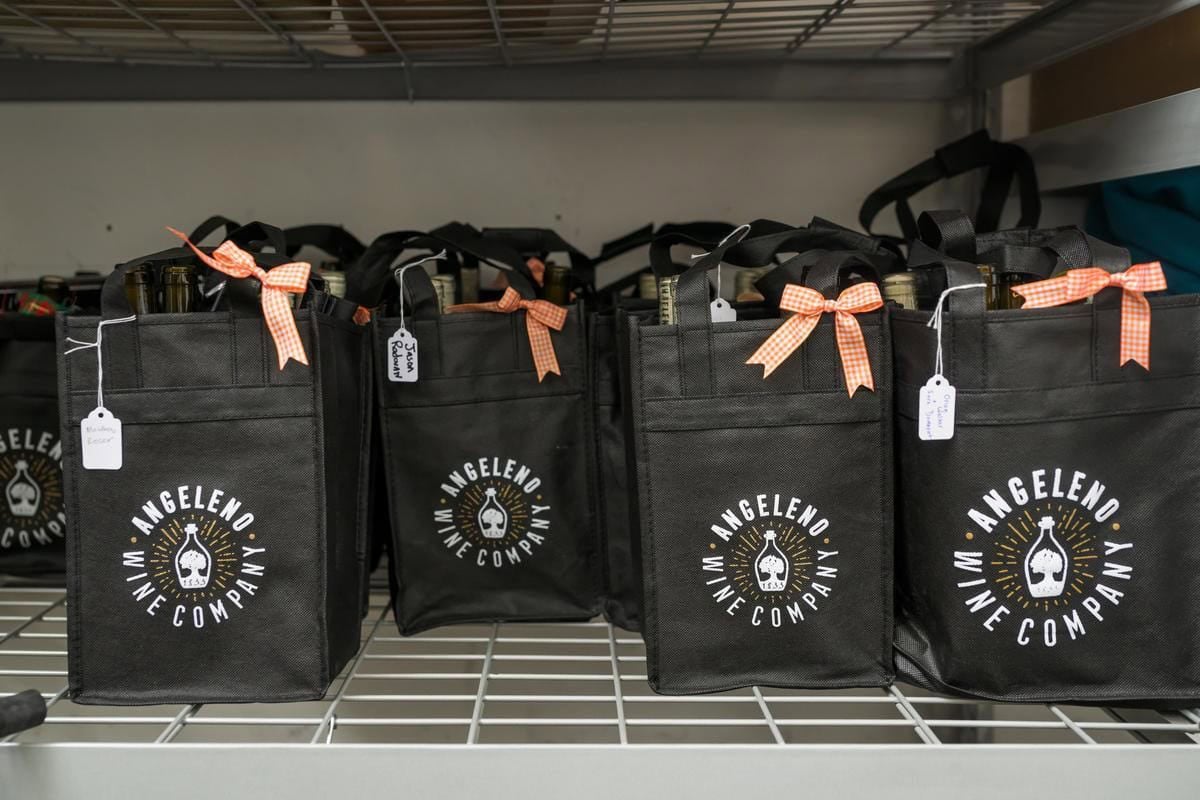
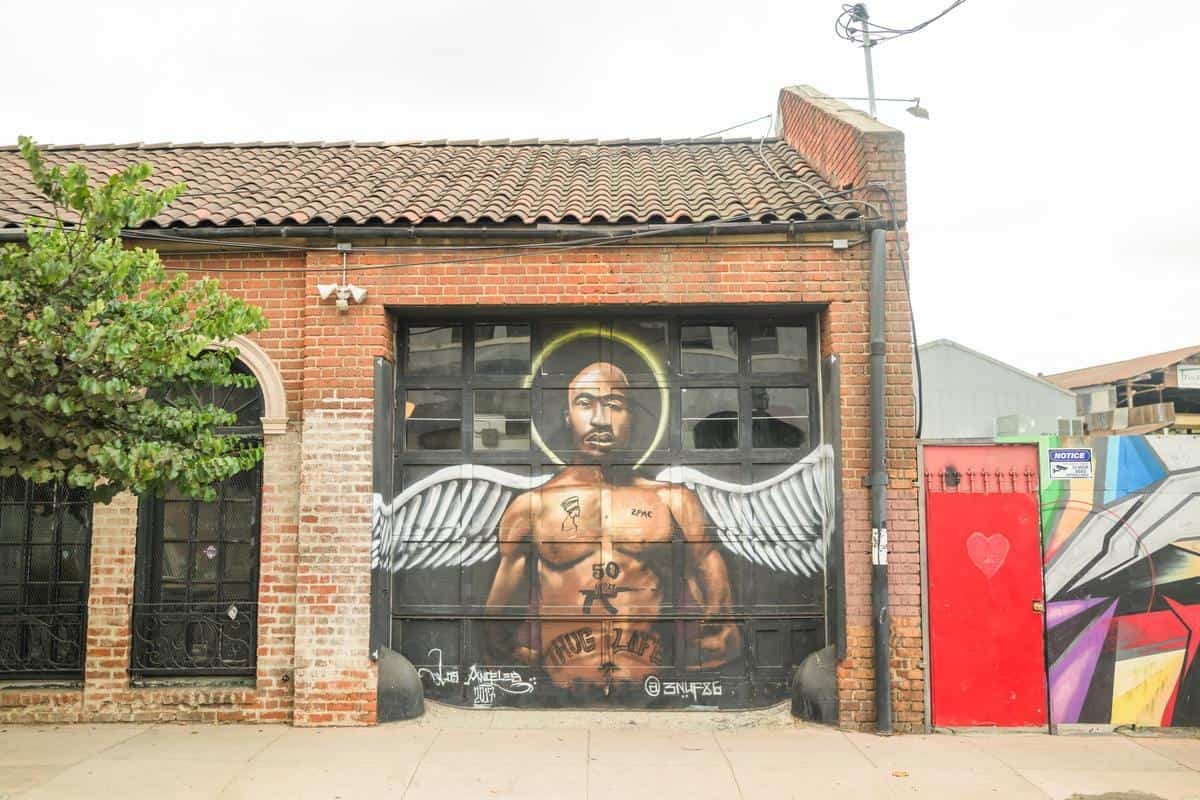
Angeleno Wine Company -Part of LA’s Food Story
You’ll find Angeleno wines at places that mirror their values. Establishments like Kitchen Mouse in Highland Park, Loretto in Frogtown, and Benny Boy Brewing just down the street. These are restaurants and shops as invested in local sourcing and seasonal ingredients as they are in creating a sense of community.
“Wine is food. It should be a part of everyday life, just like a great meal,” encourages Jasper.
By centering their wines in LA’s growing food scene, Angeleno is helping reconnect Angelenos with their culinary roots. And with a wine tradition that predates Napa by more than a century.

Plan Your Visit to Angeleno Wine Company
Angeleno Wine Company is open for tastings:
- Fridays – Sundays
- Location: Just north of Chinatown, across from LA State Historic Park
- Tastings: $20 for a flight, glasses $11–14
- Family and dog friendly
Come for the wine. Stay for the story. And leave with a whole new perspective on what California Grown really means.
“We can make as good a wine as anyone—right here in Los Angeles,” Amy promises.
Article written for Alison Needham (@agirl_defloured) for California Grown, images and video by James Collier, Paprika Studios.
